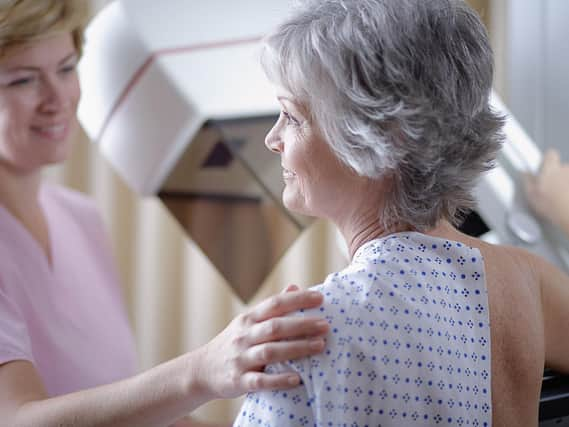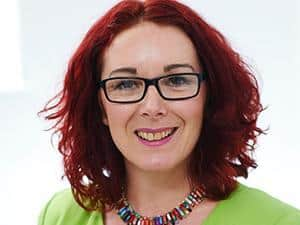Warning over human cost of cancer delays in Yorkshire which could be seen for 'years to come'


Some three million people in the UK are living with cancer, including 179,000 in Yorkshire, with an estimated 7,500 more to face a diagnosis in the region over the next three months, according to Macmillan Cancer Support.
Yet in the wake of delayed visits to GPs or hospital trips amid anxieties in the midst of the coronavirus pandemic, a former lead cancer nurse in West Yorkshire has said services could see a dramatic shift.
Advertisement
Hide AdAdvertisement
Hide AdIn the next three to six months, fears strategic partnership manager for Macmillan Jules Hoole, cancer services could start to see people presenting with more advanced symptoms, that leaves them with fewer treatment options.


“There’s a massive impact that we haven’t seen yet,” she said. “There are thousands of people missing a diagnosis - not because the hospital is shut but because they haven’t presented.
“When I first saw cancer patients, 20 years ago, they would ask ‘how long have I got’? Seven years ago, they would ask ‘how long until I can start treatment?’
“We absolutely did make that shift - from cancer being a death sentence to something that for a massive percentage of people is treatable. We could be going back 20 years.”
Advertisement
Hide AdAdvertisement
Hide Ad“Cancer services do have to stay open, and remain open,” she added. “We all have to work together - GPs and charities and acute trusts - and it will change services for the future.
“The Government has to make sure that these resources remain open. And we need to continue to build the NHS after this.”
There has been a natural fear from many people about presenting with symptoms to a GP or attending hospital, as they are advised to shield and stay home to protect themselves.
Additionally, said Ms Hoole, there has been a perception that cancer services are “closed”, which almost allows people to put off difficult decisions.
Cancer care services 'open'
Advertisement
Hide AdAdvertisement
Hide Ad“Services are still there, it’s just that often they are remote, and they are different,” she said. “All the cancer alliances in Yorkshire absolutely have cancer as a priority.
“We’ve learned a lot, around protecting beds, cancer staff not being moved. We cannot just shut down, or turn off the phone.
“Our priority is ensuring people living with cancer can still get the crucial care and support they need, whilst helping to alleviate the immense strain put on the NHS by this pandemic.”
Despite assurances, she added, there is no doubt the past months have proved an impossibly difficult time for those people facing a cancer diagnosis. She cannot imagine, she said, the pain of leaving a loved one or partner in a hospital car park to face a diagnosis alone, or travelling in fear on public transport for treatment.
Advertisement
Hide AdAdvertisement
Hide Ad“The hospitals are absolutely brilliant, but it’s just not the same as having a loved one there,” she said. “The burden, of going through all that on your own, is absolutely huge.
“The challenge is about not letting cancer become the ‘forgotten C’ because of Covid. The GP is there - the hospital is safe. We will do what is right.
“Having cancer treatment and knowing you’re going to survive is very different from living with cancer and having treatment to alleviate symptoms,” she added. "The impact is going to be felt for quite some years.”
Improvements to care
Some changes that were brought in as safety measures have proved so effective they improve treatment, said Jules Hoole.
Advertisement
Hide AdAdvertisement
Hide AdVideo consultations and triage systems have resulted in far fewer hospital trips, speeding up response times and easing barriers over stigma. In future, changes could see a return to more community-based care.
“That will change things forever - it won’t ever go back to how it was,” said Ms Hoole. “We can do things remotely, so we do it quickly. They are not having to come in to hospital, and then going home devastated. For some people, it’s a preference.”